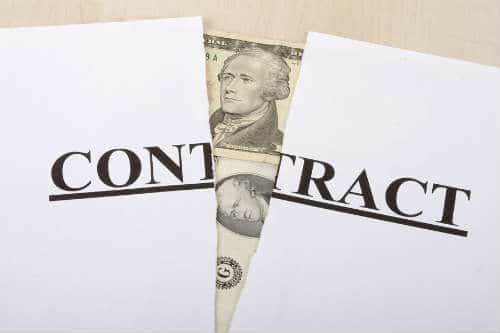If the effects of the recession have left you with a home or condo that is worth less than the amount of your current mortgage balance, you may have considered a strategic default.
A strategic default is when a borrower decides to default on their mortgage – basically refuses to make payments – and walks away from the loan. The bank will report this to the credit bureau, but for many borrowers, the cost savings is enough to prompt this type of drastic move.
Reasons Why You Would Consider a Strategic Default
An increasing number of borrowers with very strong credit and a healthy credit history are choosing a strategic default in recent years. Foreclosure defense attorneys warn that borrowers should consider all of the long-term consequences of this type of move, but many are still going ahead with it.
According to a 2009 national survey by Reecon Advisors, nearly one out of 10 homeowners, or 7.4 million, would be likely to choose a strategic default strategy if they were in a situation where their house was worth less than what was owed on the mortgage.
Many homes have fallen “underwater” from the recession, and many homeowners are finding it impossible to sell their home for a decent price. While there is always the option to wait it out and hope that the home values improve when the economy turns around, this could take several years.
Declaring that you have an inability to pay your mortgage — even when you can afford the monthly payment —puts you in an entirely new borrower category and could end up haunting you for years.
Effects of a Strategic Default on Your Credit Score
FICO reports that borrowers who choose a strategic default ton their mortgage typically lose about 150 points from their credit score. This is a significant amount when you consider that the highest FICO score you can have is 850. Unless you have a very high score – somewhere between 700 to 800+ — you could put yourself at risk for a very poor credit rating from this single move.
The effects of a drastically lower credit score include:
- Difficulty obtaining a home loan at an attractive interest rate
- Inability to open up new lines of credit
- Missing out on low-interest credit card offers
- Being turned down for even a basic personal loan or auto loan from a bank or other financial institution
Still, thousands of homeowners are choosing a strategic default just so that they don’t have to deal with a mortgage that is now underwater. If you have considered this strategy to catch up financially, remember that there are several consequences of losing that many points at once.
Even if you have stellar credit, a strategic default can limit your ability to get attractive financing offers and interest rates in the future.








